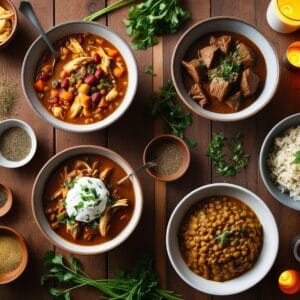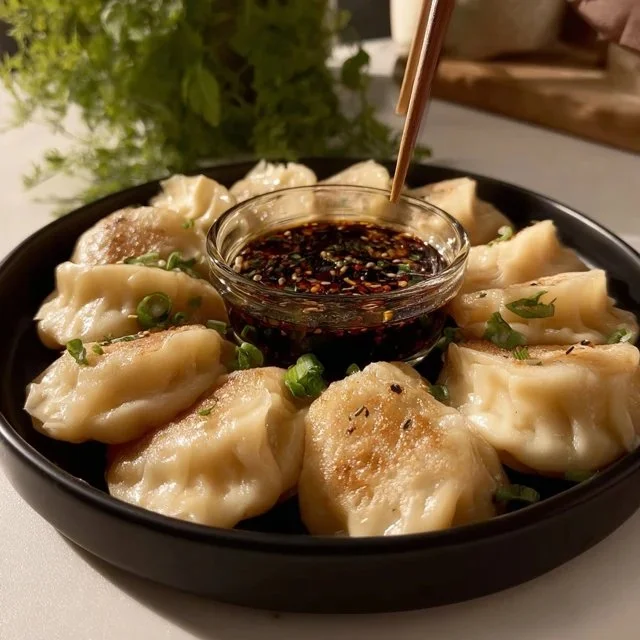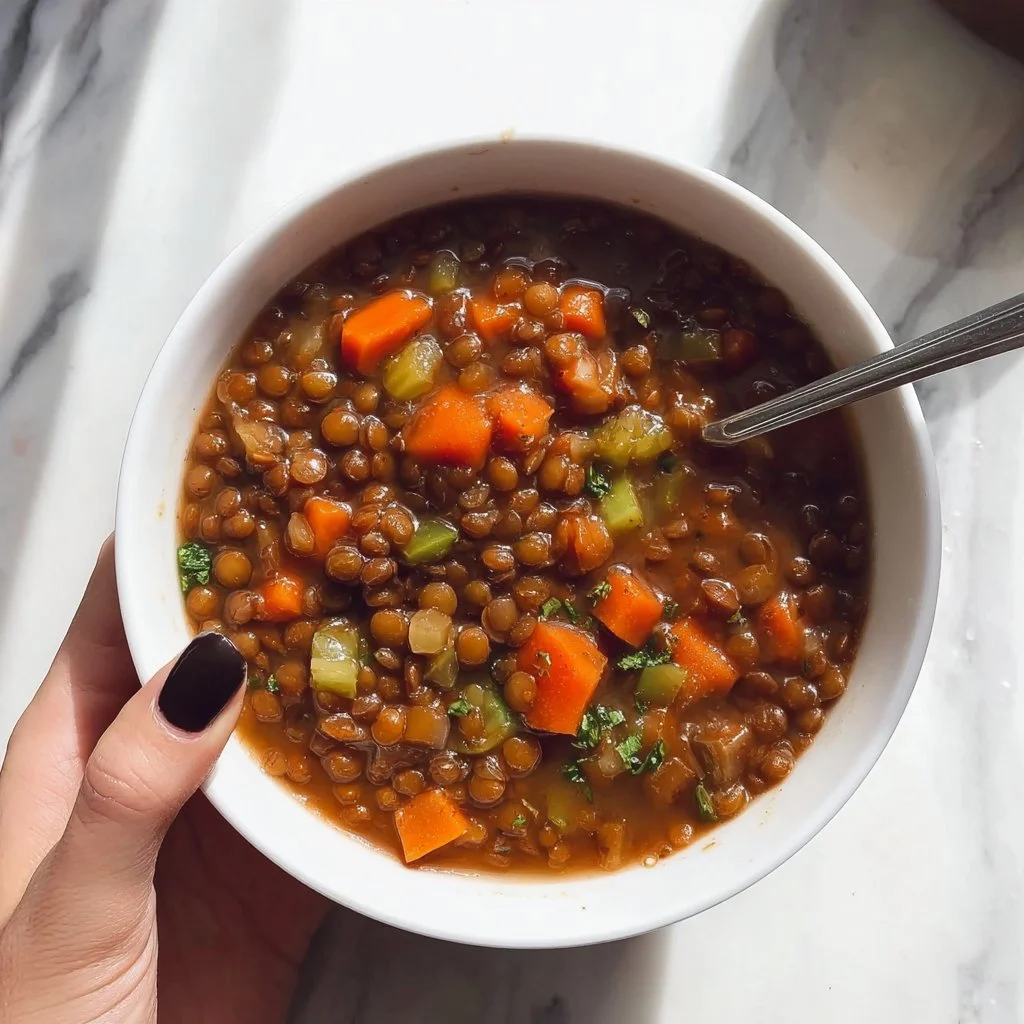Table of Contents
In today’s fast-paced world, eating a balanced and nutritious diet can feel like a monumental challenge. Luckily, high protein slow cooker recipes offer an exceptional solution for individuals looking to maintain or boost their protein intake while juggling busy schedules. With the convenience of slow cooking, these recipes are not only easy to prepare but also ensure a flavorful and satisfying meal packed with essential nutrients. Whether you are a fitness enthusiast, someone on a weight loss journey, or simply looking for healthy meal options, high-protein slow cooker recipes have something for everyone.
Introduction
Protein is a cornerstone of a healthy diet, playing a vital role in muscle repair, immune function, and overall energy levels. Therefore, incorporating protein-rich meals into your daily routine can help maintain a balanced diet, promote satiety, and support an active lifestyle. However, preparing high-protein meals can sometimes feel time-consuming or overwhelming.
This is where the slow cooker becomes a game-changer. Specifically, slow cooking allows you to prepare meals with minimal effort, using a “set it and forget it” approach. By combining lean proteins, fresh vegetables, and nutrient-rich broths, slow cookers can transform simple ingredients into hearty, delicious dishes. For instance, a steaming bowl of chicken chili or a creamy lentil stew can be both time-efficient and nutritionally dense.
Moreover, the versatility of slow cookers also caters to various dietary preferences and restrictions, making them ideal for keto, paleo, vegan, or vegetarian diets. In this article, we will explore the world of high-protein slow cooker recipes, providing inspiration, tips, and easy-to-follow recipes to make mealtime a breeze.
Benefits of High-Protein Slow Cooker Recipes
High-protein slow cooker recipes combine the nutritional power of protein-rich ingredients with the convenience of slow cooking. Therefore, these meals are ideal for anyone looking to save time while maintaining a balanced diet. Below, we explore the key benefits of incorporating these recipes into your routine.
Nutritional Value of Protein-Rich Meals
To begin with, protein is essential for various bodily functions, from building and repairing tissues to supporting the immune system and producing enzymes. Consequently, high-protein meals contribute to:
- Muscle Health: Whether you’re an athlete or someone trying to maintain muscle mass, protein is vital for muscle growth and repair.
- Satiety: Protein-rich foods keep you feeling full longer, reducing unnecessary snacking and aiding weight management.
- Metabolism Boost: Consuming protein helps increase thermogenesis, which can support a healthy metabolism.
By preparing protein-packed meals in a slow cooker, you ensure that these nutrients are retained during the cooking process. Unlike other methods, slow cooking prevents the degradation of amino acids that can occur with high-heat techniques.
Convenience of Slow Cooking
One of the greatest advantages of slow cookers is their ability to simplify meal preparation. In fact, this hands-off cooking method is perfect for busy individuals.
- Hands-Off Cooking: Once you’ve added the ingredients, the slow cooker does the work for you. As a result, you can focus on other tasks without constant monitoring.
- Batch Cooking: Slow cookers are perfect for preparing large quantities, making them ideal for families or meal prep.
- Versatility: From soups and stews to casseroles and curries, slow cookers can accommodate a wide range of recipes and ingredients.
Cost-Effectiveness of Meal Prep
Preparing high-protein slow cooker recipes can also be a budget-friendly way to enjoy nutritious meals:
- Affordable Ingredients: Many protein sources, such as beans, lentils, and chicken thighs, are cost-effective yet highly nutritious.
- Minimizing Waste: Slow cookers allow you to utilize less desirable cuts of meat, which become tender and flavorful when cooked slowly.
- Energy Efficiency: Slow cookers consume less energy compared to ovens or stovetops, reducing utility costs.
Healthier Cooking Method
Slow cooking is a healthier alternative to frying or sautéing, as it typically requires less oil and helps retain nutrients. The low and consistent heat ensures that:
- Meats Stay Tender: Lean cuts of meat, which are often prone to drying out, remain juicy and flavorful.
- Vegetables Retain Nutrients: The gentle cooking process helps preserve vitamins and minerals.
Perfect for Busy Lifestyles
Additionally, in a world where time is often a luxury, slow cookers provide a practical solution for meal preparation. Simply assemble your ingredients in the morning, set the timer, and return to a perfectly cooked meal at dinnertime. This convenience is especially beneficial for working professionals, students, and parents managing busy households.
Essential Ingredients for High-Protein Slow Cooker Recipes
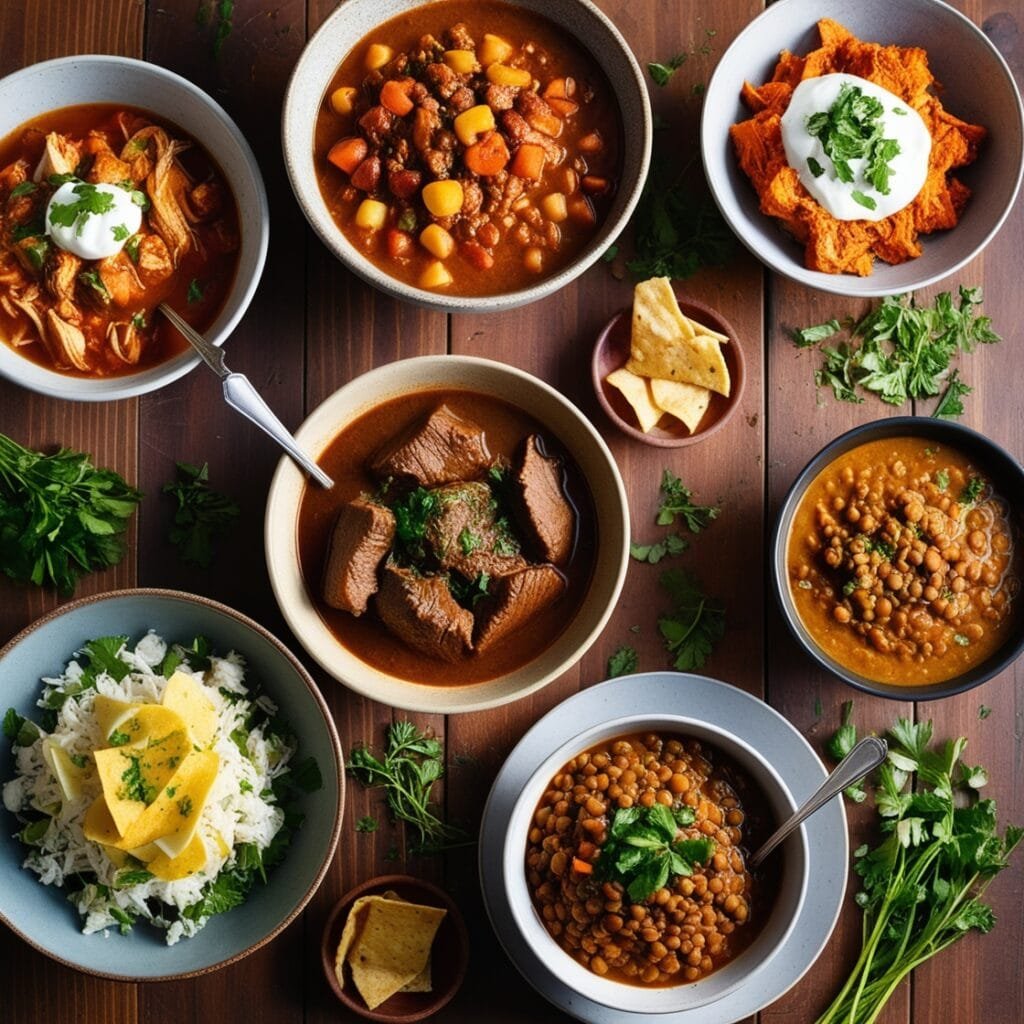
Creating high-protein slow cooker recipes starts with choosing the right ingredients. The combination of lean proteins, nutritious vegetables, and flavorful seasonings ensures your meals are both delicious and balanced. Let’s explore some of the must-have ingredients for these recipes.
Protein Sources
The core of any high-protein recipe is, of course, the protein. Here are some versatile options to suit different dietary preferences:
1. Chicken
- Why it’s Great: Chicken is a lean source of protein, packed with essential amino acids. Furthermore, it’s budget-friendly and easy to cook in a slow cooker.
- Cuts to Use: Chicken breast for leaner dishes, or chicken thighs for more tender and flavorful meals.
- Recipe Idea: Slow Cooker Garlic Herb Chicken.
2. Beef
- Why it’s Great: Beef provides high-quality protein along with important nutrients like iron and zinc. Additionally, it pairs well with hearty vegetables and rich broths.
- Cuts to Use: Chuck roast, brisket, or stew meat, which become tender and flavorful with slow cooking.
- Recipe Idea: High-Protein Beef Stew.
3. Fish
- Why it’s Great: Fatty fish like salmon and cod are rich in protein and heart-healthy omega-3 fatty acids.
- Cooking Tip: Add fish later in the cooking process to prevent overcooking.
- Recipe Idea: Slow Cooker Mediterranean Salmon.
4. Plant-Based Proteins
- Lentils: A powerhouse of protein and fiber, perfect for vegetarian and vegan recipes.
- Chickpeas: Versatile and hearty, chickpeas add texture and protein to soups and stews.
- Tofu: A great option for absorbing the flavors of slow-cooked dishes.
- Recipe Idea: Protein-Packed Lentil Curry.
5. Eggs
- Why it’s Great: High in protein and essential vitamins, eggs can be used in breakfast-style slow cooker recipes.
- Recipe Idea: Slow Cooker Egg and Spinach Casserole.
Complementary Ingredients
High-protein recipes shine when paired with nutrient-dense vegetables, whole grains, and seasonings.
1. Vegetables
- Examples: Spinach, kale, carrots, celery, zucchini, and bell peppers.
- Benefits: Provide fiber, vitamins, and minerals to complement the protein source.
- Cooking Tip: Add sturdy vegetables at the beginning and delicate ones later to prevent overcooking.
2. Whole Grains
- Examples: Quinoa, barley, and brown rice.
- Why They’re Great: These grains boost the protein content and add texture to slow cooker meals.
- Cooking Tip: Pre-cook grains or add them towards the end of the cooking time for best results.
3. Legumes
- Examples: Black beans, kidney beans, and white beans.
- Why They’re Great: Rich in protein, fiber, and antioxidants, legumes enhance the nutritional profile of soups, stews, and chili.
4. Broths and Sauces
- Examples: Chicken broth, vegetable stock, coconut milk, or tomato-based sauces.
- Benefits: These add depth of flavor and keep the ingredients moist during the slow cooking process.
5. Herbs and Spices
- Examples: Garlic, rosemary, thyme, cumin, paprika, and turmeric.
- Benefits: Elevate the flavor profile of dishes while providing health benefits.
Tools to Enhance Slow Cooking
While the ingredients are the star, having the right tools can make your slow cooking experience even better.
- Slow Cooker Liners: Easy cleanup after meals.
- Thermometer: Ensures meat reaches the proper temperature for safe consumption.
- Prep Containers: Useful for organizing and storing pre-chopped ingredients for convenience.
Armed with these essential ingredients and tools, you’re ready to create meals that are not only high in protein but also brimming with flavor and nutrition.
Popular High-Protein Slow Cooker Recipes
Slow cooker recipes offer endless possibilities, from comforting stews to protein-packed curries. Below are some top-rated recipes, categorized by protein sources, that cater to various dietary preferences and taste preferences.
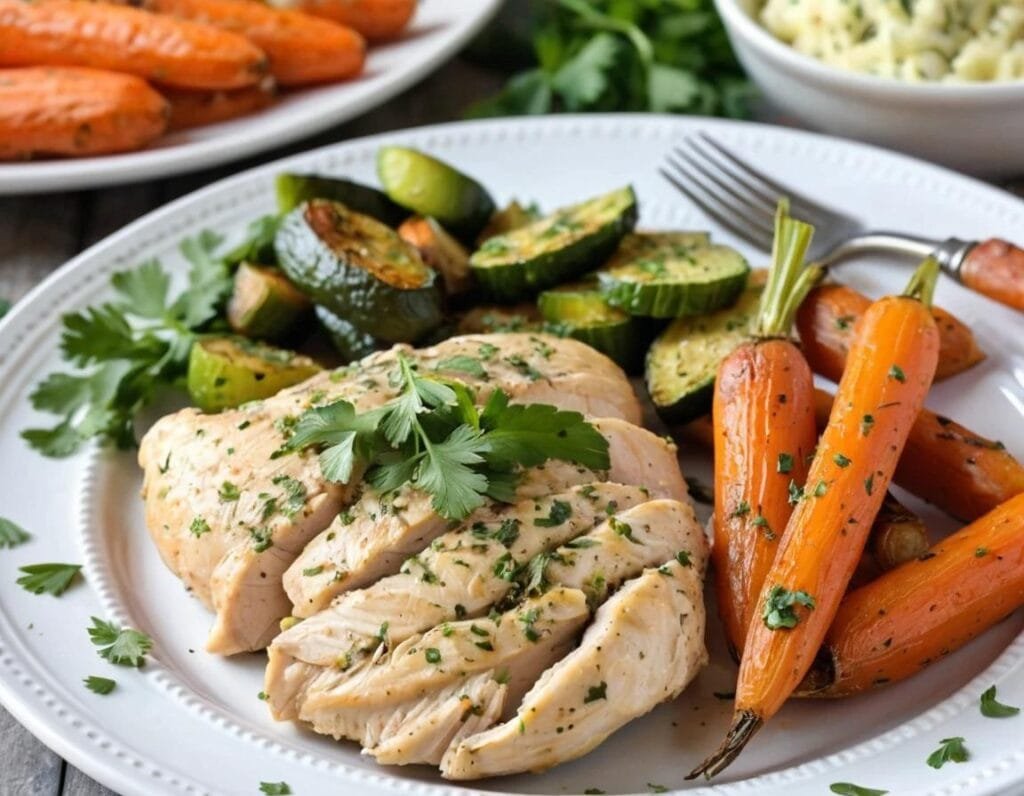
Slow Cooker Chicken Recipes
1. High-Protein Chicken Chili
This hearty recipe is a favorite for its rich flavors and high protein content.
- Ingredients:
- 2 pounds chicken breasts, shredded
- 1 cup black beans
- 1 cup kidney beans
- 1 cup diced tomatoes
- 1 cup chicken broth
- 2 teaspoons cumin
- 1 teaspoon chili powder
- 1 onion, diced
- 1 bell pepper, chopped
- Instructions:
- First, add all ingredients to the slow cooker.
- Then, cook on low for 6-8 hours or high for 3-4 hours.
- Finally, shred the chicken, stir, and serve with a dollop of Greek yogurt or avocado slices.
- Protein Boost: Pair with a quinoa salad or top with shredded cheese.
2. Garlic Herb Slow Cooker Chicken Breasts
Perfect for meal prep or a family dinner, this dish highlights the versatility of chicken.
- Ingredients:
- 4 boneless, skinless chicken breasts
- 2 tablespoons olive oil
- 2 teaspoons minced garlic
- 1 teaspoon dried thyme
- 1 teaspoon rosemary
- ½ cup low-sodium chicken broth
- Salt and pepper to taste
- Instructions:
- First, place chicken in the slow cooker and season with herbs, garlic, salt, and pepper.
- Then, pour chicken broth over the top.
- After, cook on low for 6 hours or high for 3 hours.
- Finally, serve with steamed vegetables or a side of mashed sweet potatoes.
Slow Cooker Beef Recipes
1. Slow Cooker Beef and Broccoli
This protein-rich dish is a healthier take on the classic Chinese takeout favorite.
- Ingredients:
- 2 pounds beef chuck roast, sliced thin
- 1 cup beef broth
- ½ cup soy sauce (low sodium)
- ¼ cup honey
- 2 tablespoons sesame oil
- 2 cups broccoli florets
- 2 teaspoons cornstarch (optional for thickening)
- Instructions:
- First, add beef, broth, soy sauce, honey, and sesame oil to the slow cooker.
- Then, cook on low for 7-8 hours or high for 4 hours.
- After, stir in broccoli during the last 30 minutes.
- And finally, serve over brown rice or quinoa.
2. High-Protein Beef Stew
This comforting stew is loaded with protein, fiber, and flavor.
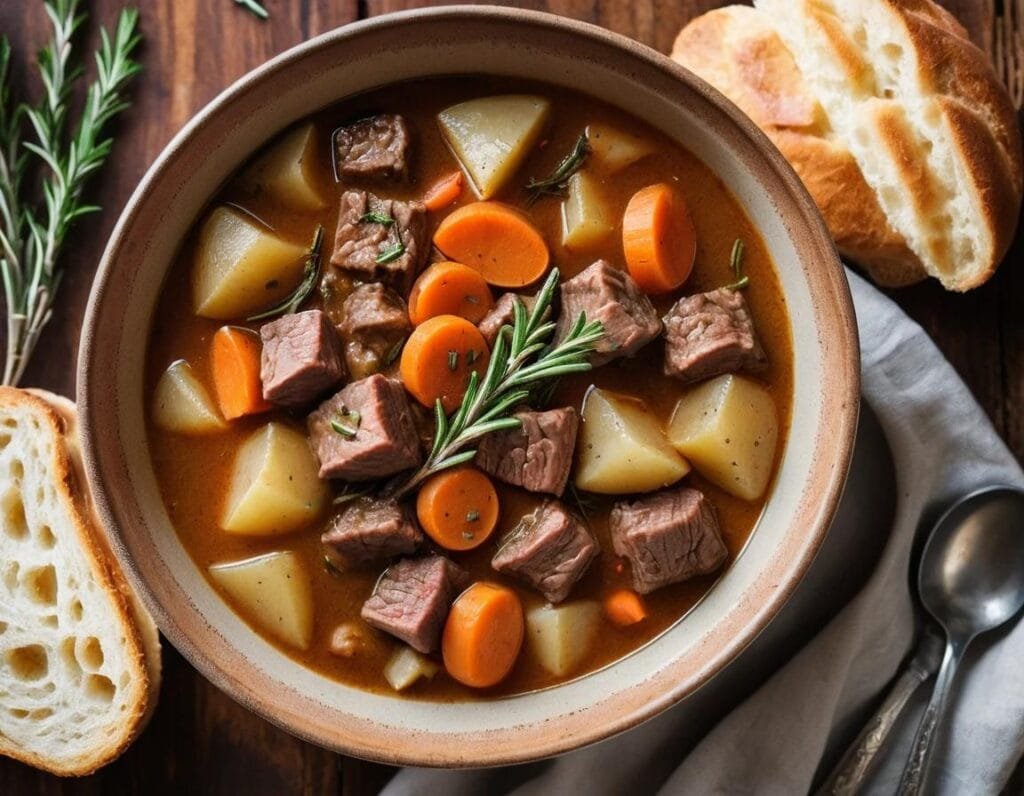
- Ingredients:
- 2 pounds stew beef
- 3 large carrots, chopped
- 2 potatoes, diced
- 1 cup celery, chopped
- 2 cups beef broth
- 2 tablespoons tomato paste
- 2 teaspoons Worcestershire sauce
- 1 teaspoon thyme
- Instructions:
- Combine all ingredients in the slow cooker.
- Cook on low for 8-10 hours or high for 4-5 hours.
- Adjust seasoning as needed and enjoy with a slice of whole-grain bread.
Vegetarian and Vegan High-Protein Recipes
1. Slow Cooker Lentil Curry
A perfect vegan option that’s bursting with spices and protein from lentils.
- Ingredients:
- 1 cup red lentils, rinsed
- 1 can coconut milk
- 2 cups vegetable broth
- 1 tablespoon curry powder
- 1 teaspoon turmeric
- 1 onion, diced
- 1 cup diced tomatoes
- 2 cups spinach leaves
- Instructions:
- Combine lentils, broth, coconut milk, spices, onion, and tomatoes in the slow cooker.
- Cook on low for 6 hours or high for 3 hours.
- Stir in spinach during the last 15 minutes.
- Serve with basmati rice or naan bread.
2. Protein-Packed Slow Cooker Chickpea Stew
This hearty stew is rich in plant-based protein and loaded with vegetables.
- Ingredients:
- 2 cans chickpeas, drained and rinsed
- 1 cup sweet potatoes, cubed
- 1 cup carrots, sliced
- 1 cup diced tomatoes
- 2 cups vegetable broth
- 1 teaspoon smoked paprika
- 1 teaspoon cumin
- 1 cup kale, chopped
- Instructions:
- Add all ingredients except kale to the slow cooker.
- Cook on low for 6-8 hours or high for 3-4 hours.
- Stir in kale during the last 30 minutes.
- Serve with quinoa or couscous for a protein boost.
These recipes highlight the versatility of slow cookers and the diverse ways to enjoy protein-rich meals.
Frequently Asked Questions (FAQs)
1. What’s the best protein for slow cooking?
Lean proteins like chicken breast and tougher cuts like beef chuck are excellent choices as they become tender during slow cooking.
2. Can you cook frozen protein in a slow cooker?
It’s best to thaw protein before using it in a slow cooker to ensure even cooking and prevent foodborne illnesses.
3. How do you prevent overcooking proteins in a slow cooker?
Follow recommended cooking times and use a meat thermometer to check internal temperatures. Avoid cooking on high heat for extended periods.
4. Can slow cooker recipes be adapted for dietary restrictions?
Absolutely! Ingredients can be substituted to accommodate keto, paleo, vegan, or gluten-free diets. For example, replace beans with tofu for a low-carb option.
5. Are slow cooker recipes cost-effective?
Yes, slow cookers allow you to use affordable ingredients like beans, lentils, and tougher cuts of meat, which become tender and flavorful with prolonged cooking.
6. How do slow cookers retain nutrients?
The low and slow cooking process preserves more nutrients than high-heat methods, ensuring your meals remain nutrient-rich.
Conclusion
In a nutshell, high-protein slow cooker recipes offer the perfect combination of nutrition, convenience, and versatility. Whether you’re meal prepping for the week or catering to specific dietary needs, these recipes provide a satisfying way to enjoy protein-rich meals with minimal effort. With the tips, recipes, and adaptations provided, you’re ready to make the most of your slow cooker. Set it, forget it, and savor the results!

